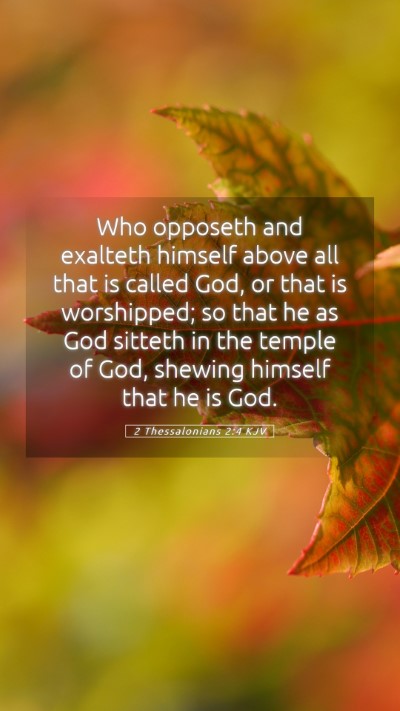Old Testament
Genesis Exodus Leviticus Numbers Deuteronomy Joshua Judges Ruth 1 Samuel 2 Samuel 1 Kings 2 Kings 1 Chronicles 2 Chronicles Ezra Nehemiah Esther Job Psalms Proverbs Ecclesiastes Song of Solomon Isaiah Jeremiah Lamentations Ezekiel Daniel Hosea Joel Amos Obadiah Jonah Micah Nahum Habakkuk Zephaniah Haggai Zechariah MalachiVerse
2 Thessalonians 2:1 2 Thessalonians 2:2 2 Thessalonians 2:3 2 Thessalonians 2:4 2 Thessalonians 2:5 2 Thessalonians 2:6 2 Thessalonians 2:7 2 Thessalonians 2:8 2 Thessalonians 2:9 2 Thessalonians 2:10 2 Thessalonians 2:11 2 Thessalonians 2:12 2 Thessalonians 2:13 2 Thessalonians 2:14 2 Thessalonians 2:15 2 Thessalonians 2:16 2 Thessalonians 2:17

